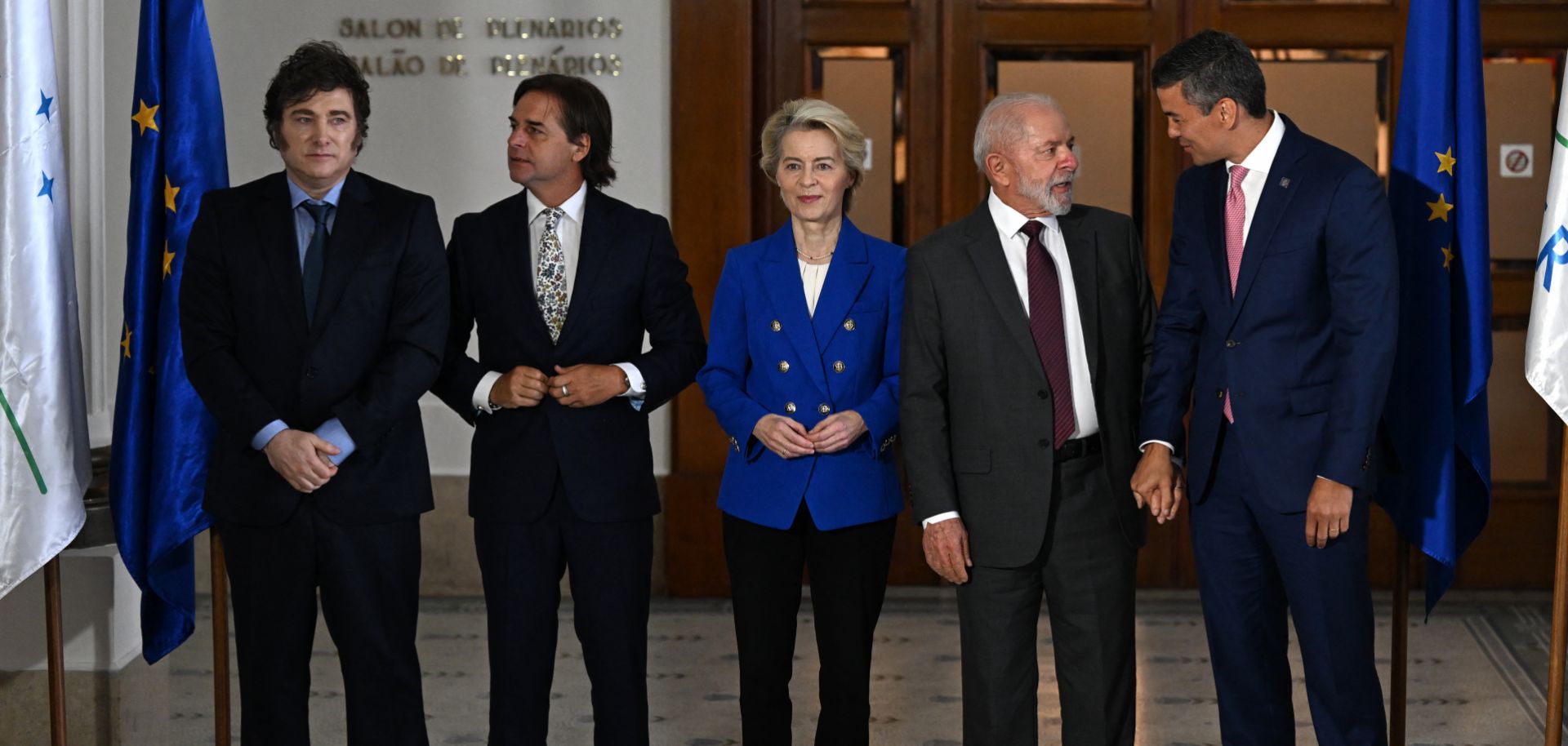The EU-Mercosur trade agreement offers significant market access and diversification opportunities for both blocs amid rising global protectionism and geopolitical tensions, but it also faces a complex ratification process and potential political backlash in Europe, where concerns over agricultural competition will fuel euroscepticism and disruptive farmer protests. On Dec. 6, the South American trade bloc Mercosur -- which includes Argentina, Bolivia, Brazil, Paraguay and Uruguay -- and the European Union reached an agreement on the terms of a free trade deal they had been negotiating since 1999. The agreement eliminates over 90% of tariffs on goods traded between the two blocs, removes non-tariff barriers and discriminatory tax practices, and facilitates trade in services. Under the deal, European companies will gain access to most of Mercosur's public procurement markets, high-value service sectors and raw materials like lithium, while the European Union will lower tariffs on agricultural goods and invest 1.8 billion euros...

